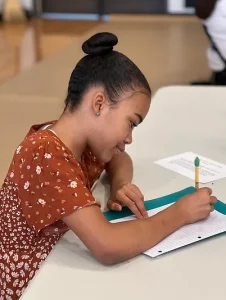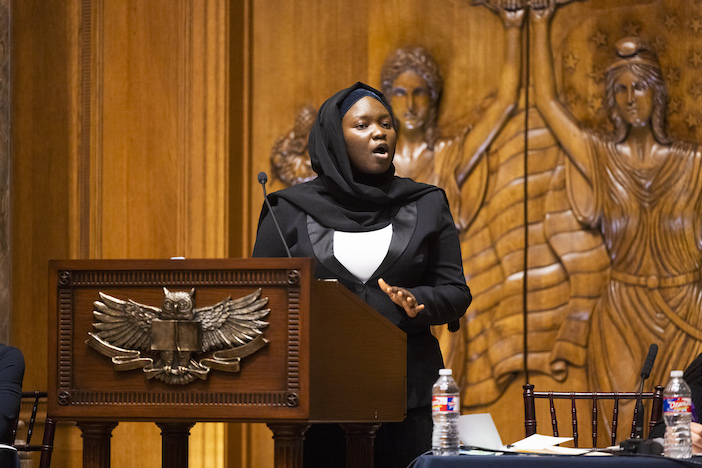Written by Communications Services junior associate, Chandler Flowers
Student debate competitions happen all around the world, and Dallas ISD is no exception. By partnering with Dallas Urban Debate Alliance, the district is able to create and train students to compete in competitions on the state and national levels.
 “Dallas ISD has 66 campuses that participate in debate from grades six through 12, serving 1,260 students,” said Michelle Read, student activities coordinator for Elementary and Secondary Debate. “We also have fifth grade debate teams in 54 campuses serving 462 students.”
“Dallas ISD has 66 campuses that participate in debate from grades six through 12, serving 1,260 students,” said Michelle Read, student activities coordinator for Elementary and Secondary Debate. “We also have fifth grade debate teams in 54 campuses serving 462 students.”
Debate teams are first formed by selecting between the three types of debate to focus on – community action, policy debate, and world schools.
In community action debate, teams of two debate on an issue in the Dallas area. For policy debate, teams, also made up of two people, debate on a national or international political issue. World schools debate involves teams of at least three students that either propose opposition or proposition viewpoints on many different topics.
“During the year, students practice at their home campus alongside their debate coach. I, alongside the Dallas Urban Debate Alliance, arrange transportation, food, and other matters during the debate competitions. Typically, we have six tournaments a year locally,” said Read.
 This year, Dallas ISD debate teams traveled to Northwestern University in Chicago and Des Moines, Iowa to compete. Additionally, students have been recognized for their achievements at this level.
This year, Dallas ISD debate teams traveled to Northwestern University in Chicago and Des Moines, Iowa to compete. Additionally, students have been recognized for their achievements at this level.
Read speaks highly about the value of debate throughout the lives of students.
“Debate is an activity that allows students to think on their feet creatively, develop communication skills, civic awareness, and critical thinking skills,” she said. “These students are also being taught how to disagree civilly, a skill that many adults don’t have and is especially useful in today’s climate.”
Read adds that debate students are more likely to be college-ready and have a wealth of intellectual curiosity due to all of the research.
For students who are interested in debate but are nervous about public speaking, Read says that the best time to take a risk is when you are young.
“Debate puts you at an advantage over people later in life. It is a model for success outside of high school,” she said.

